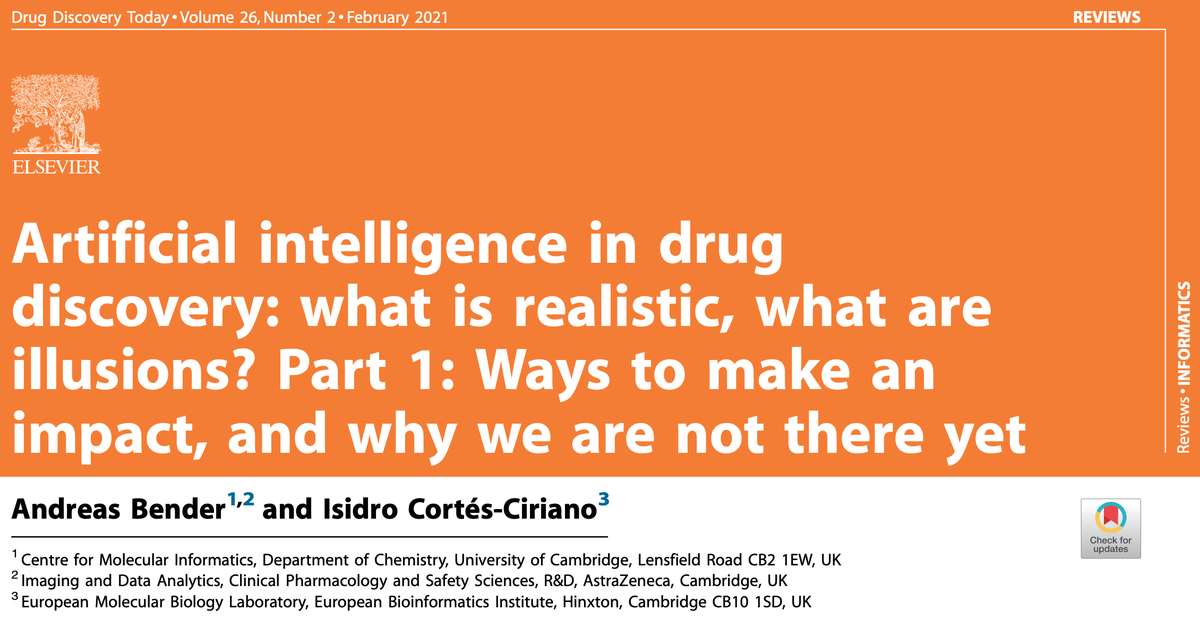Artificial intelligence in drug discovery and what's holding it back?

Artificial intelligence can have a strong impact on drug discovery by reducing the number of drugs that fail in clinical trials. Currently, AI is focused on method development using preclinical data, rather than on applying and generating the clinical data needed to have a real impact on drug discovery. The researchers outline what aspects of AI work well in the drug discovery process, what can be done to improve its use, and what changes AI needs to make to begin to benefit future drug discovery pipelines.
AI - From Ligand Discovery to Drug Discovery
One of the most successful examples of the use of AI in the larger context of drug discovery is the discovery of ligands in the preclinical setting: identifying molecules that bind to a biological target of interest. To this end, AI has effectively helped to validate targets that may be suitable for treating diseases.
However, predicting the right ligand does not guarantee drug success, i.e., an effective and safe drug in vivo. If drug discovery is to truly benefit from the use of AI, current methods, and in particular the data on which they are based, need to be further developed.
Understanding biology
Complex biology is context-dependent, which makes it difficult to understand, and it only gets harder when you try to model changes in space and over time, such as gene expression. This is a weakness of current computational drug discovery and can pose a big problem when you add AI to the mix.
Researchers all need to be able to model differences in patient biology in order to take complex data into account; but also need to be able to generalize in order to find consistent features between patients that can be used in drug discovery decisions. Therefore, to improve drug discovery, researchers need to focus on how AI can help when data is already available and by generating data to help researchers take full advantage of AI’s potential for drug discovery.
More clinically relevant data
To validate AI in the downstream clinical phase of drug discovery, researchers need to move to more complex biological systems and eventually apply these methods to real-life clinical scenarios. At the computational level, this means including more predictive endpoints related to efficacy (a drug’s ability to produce the desired outcome) and safety in the models researchers use.
The researchers conducted computational simulations to determine the impact of reduced costs, increased speed and improved quality of decisions on drug discovery success rates. These showed that improving the quality of the compound had the greatest impact on the overall success of the trial. This suggests that for AI to have a real impact on drug discovery success, researchers should focus on improving the quality of decisions - i.e., better selecting which compounds to enter into clinical trials - rather than focusing solely on improving speed or reducing costs.
The Future of Artificial Intelligence Drug Discovery
The data currently available do not always allow researchers to make judgments about the efficacy and safety of potential new drugs, for example using data from preclinical versus clinical sources. When these types of data, which predict in vivo conditions from an efficacy and safety perspective, are large enough, artificial intelligence can use them in the drug discovery decision-making process. Once this stage is reached, AI in drug discovery may be elevated to a whole new level.
Improved use of artificial intelligence in drug discovery will come from a more comprehensive understanding of the complex connections between genes, proteins and diseases. Once researchers generate and use data that truly reflect the biological aspects of drug discovery and correlate these data with relevant in vivo endpoints, researchers can apply AI approaches to make real advances in the field, improve understanding of efficacy and safety in drug discovery, and apply AI to these data, potentially having a far-reaching impact.
More information can be accessed here.
Reference
-
BENDER, A., et al. (2021). Artificial intelligence in drug discovery: what is realistic, what are illusions? Part 1: Ways to make an impact, and why we are not there yet. Drug Discovery Today.
-
BENDER, A., et al. (2021). Artificial intelligence in drug discovery: what is realistic, what are illusions? Part 2: a discussion of chemical and biological data. Drug Discovery Today.
-
DrugAI